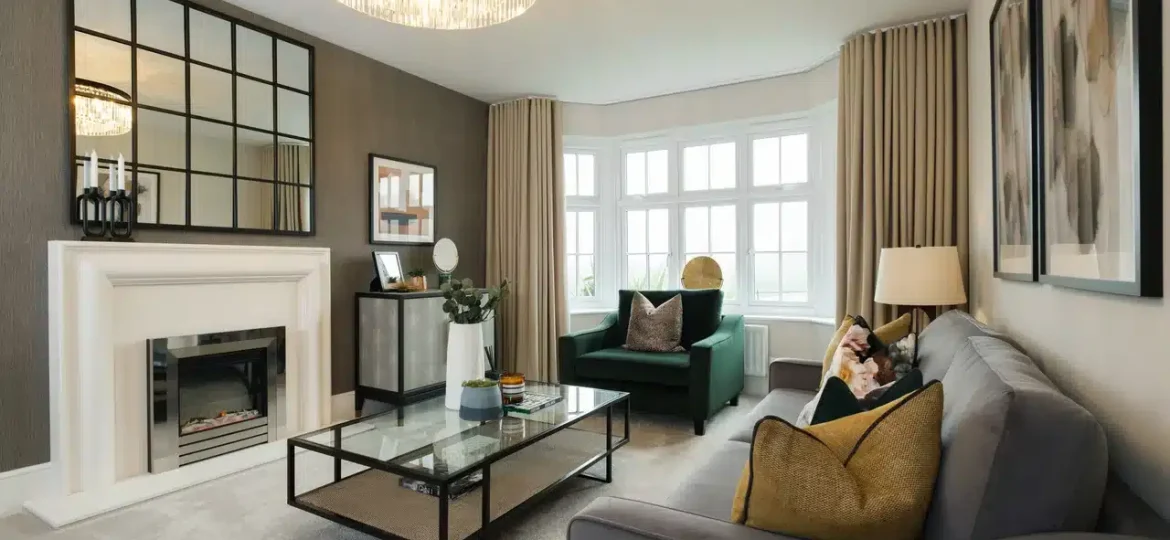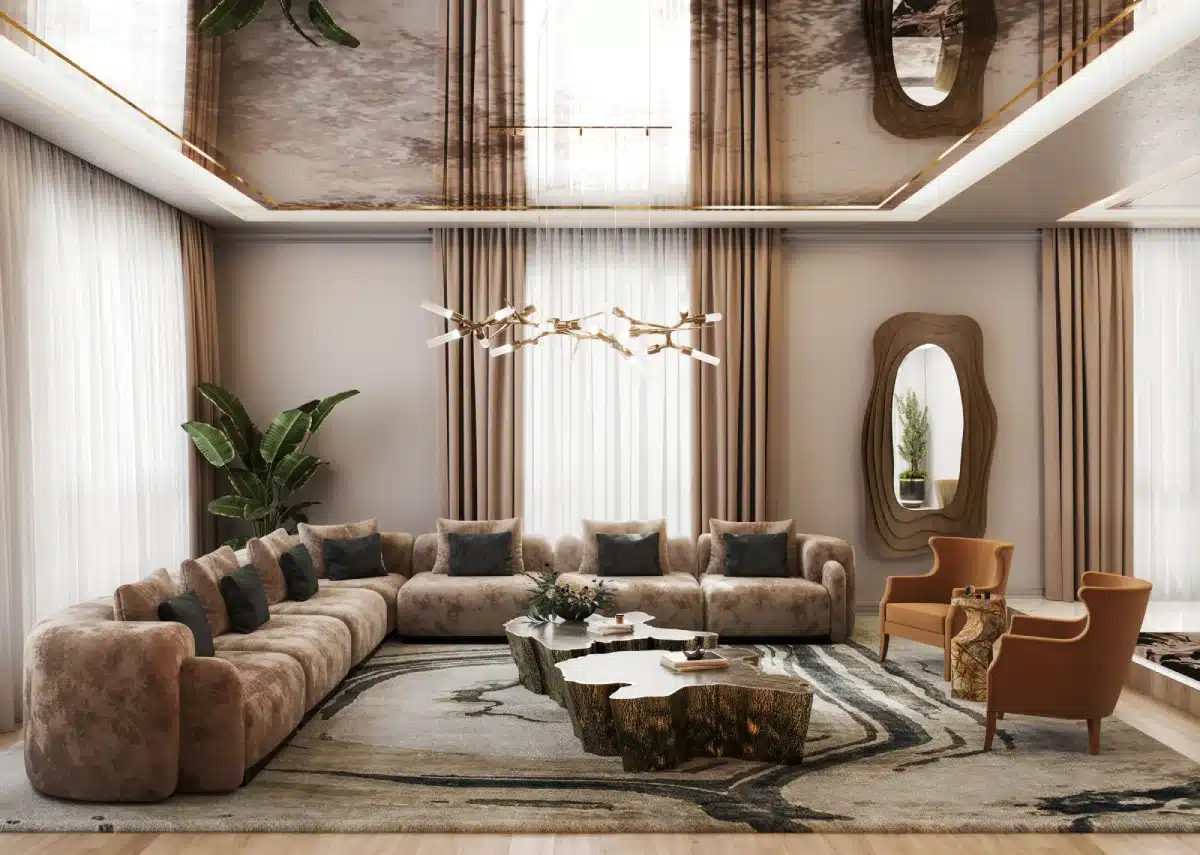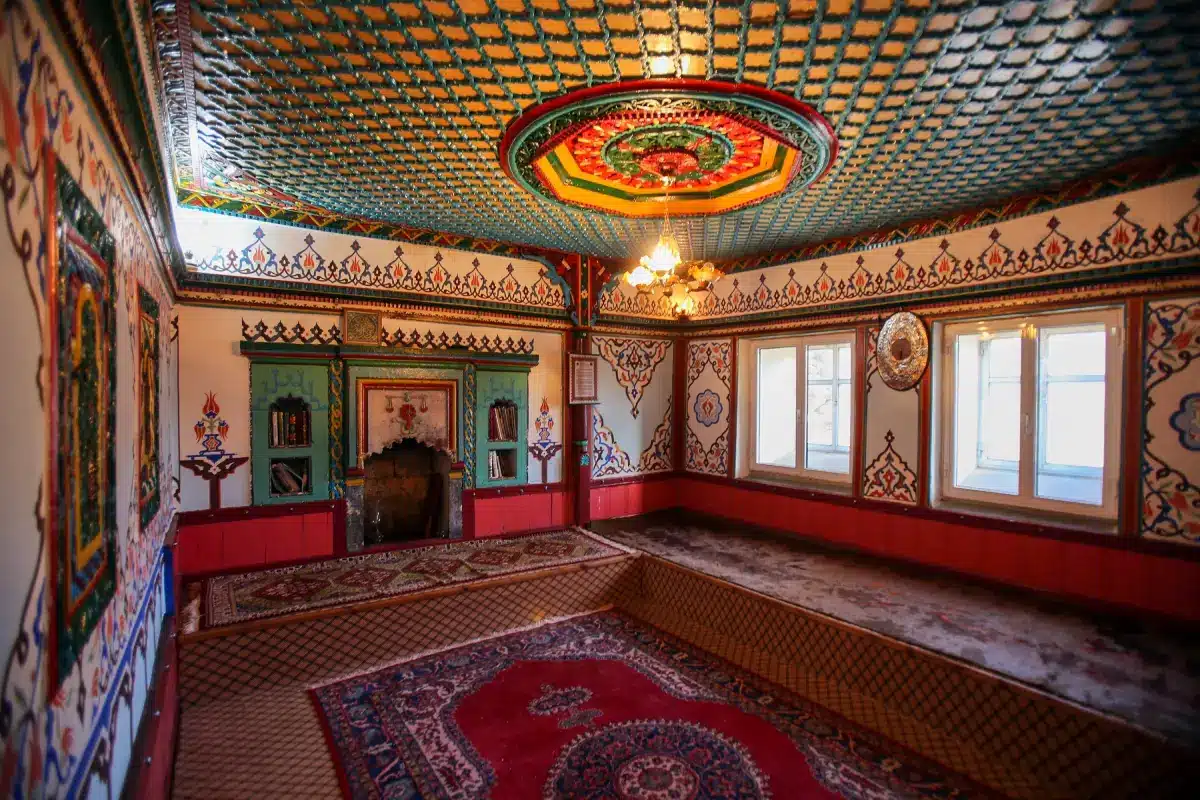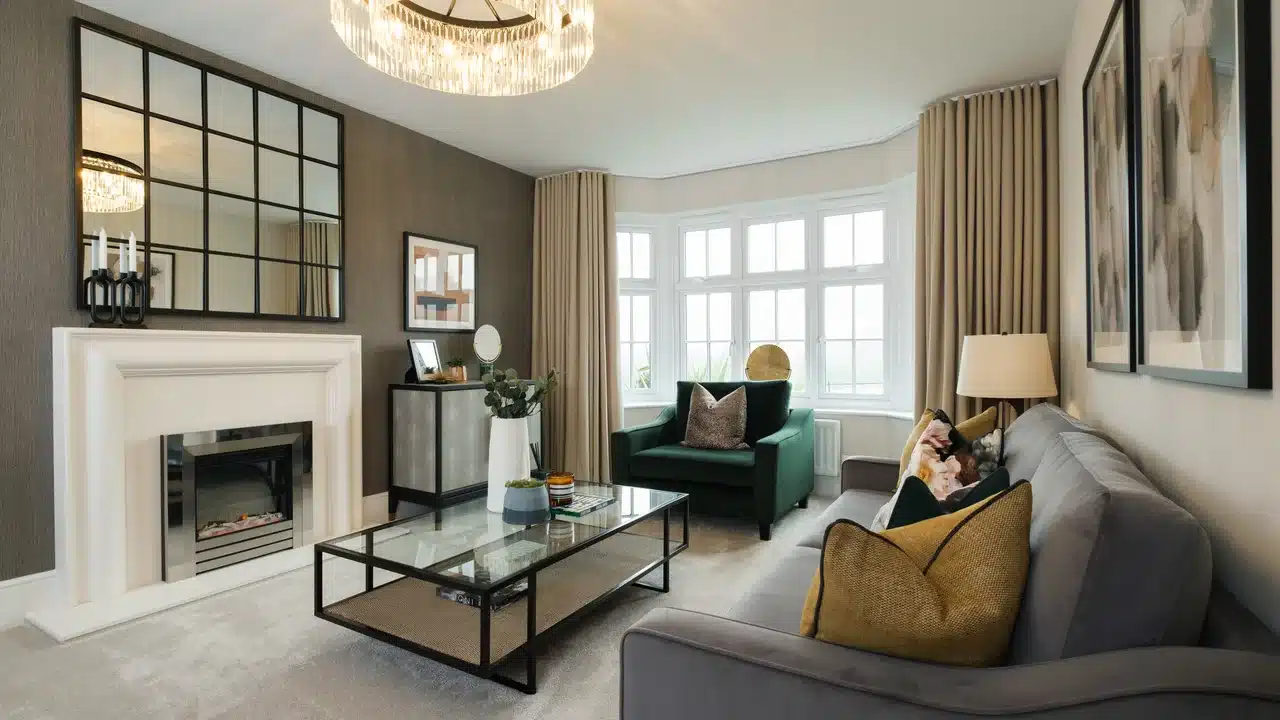
Turkey’s interior design industry is experiencing robust growth, driven by rapid urbanization, a burgeoning real estate sector, and rising disposable incomes. The market size was valued at approximately USD 871.66 million in 2023 and is anticipated to reach USD 1,079.94 million by 2032, exhibiting a compound annual growth rate (CAGR) of 2.38%. This expansion is fueled by an increasing demand for sophisticated, functional, and aesthetically appealing interior solutions across residential, commercial, and hospitality sectors.
The importance of hiring expert “Turkey interior design” professionals cannot be overstated. For foreign investors and expats, local designers offer invaluable insights into Turkish culture, regulatory frameworks, and material sourcing, which are critical for project success. They can bridge cultural gaps, ensure compliance with local building codes, and deliver designs that resonate with both international standards and local sensibilities.
Understanding Turkey Interior Design Trends
The “interior design in Turkey” landscape is a fascinating blend of global influences and local heritage. Staying abreast of these trends is crucial for creating relevant and appealing spaces.
Current Market Trends and Influences
In 2025, several key trends are shaping “Turkey interior design”:
- Sustainability and Eco-Friendly Design: There’s a growing emphasis on environmentally conscious design, utilizing natural materials like wood, stone, and bamboo. Energy-efficient systems, smart lighting, and integration of natural light are increasingly sought after. Projects that reduce carbon footprints are highly preferred.
- Smart Home Technology: The integration of smart home systems is becoming a standard feature. Automated lighting, heating/cooling, security, and AI-powered systems that adapt to personal habits are transforming living spaces into intelligent environments.
- Cultural Fusion and Modern Minimalism: Turkish designers are adept at blending traditional Ottoman and Seljuk motifs with contemporary aesthetics. This often results in luxurious, bespoke interiors that incorporate rich textures, bold color palettes (warm beiges, deep blues, burgundy, olive green), and geometric patterns, while also embracing minimalist principles for functionality and decluttered spaces.
- Open and Flexible Spaces: Driven by changing lifestyles, multi-purpose rooms, foldable furniture, and modular designs are gaining popularity, allowing spaces to be easily reshaped according to needs. Large windows and glass systems that connect indoor and outdoor areas are also prominent.
- Biophilic Design: Bringing nature indoors through plant walls, interior gardens, and natural light is a significant trend, promoting physical and mental well-being.
Regional Focus: Interior Design in Istanbul
Istanbul, as Turkey’s economic and cultural powerhouse, dominates the interior design market, accounting for approximately 50% of the market share. Its vibrant property sector and cosmopolitan lifestyle foster a high demand for innovative and luxurious interior solutions.
The city’s rapid urbanization and real estate development significantly impact its design scene. Areas like Karaköy, Bomonti, and Galata are experiencing urban transformation, with historic industrial spaces being converted into stylish lofts and creative living areas. This gentrification drives demand for unique, high-end interior designs that blend industrial authenticity with modern comfort. Investors are particularly drawn to “Istanbul real estate” opportunities that feature unique design elements, as these often command higher rental yields and appeal to both short-term and long-term residents.
Types of Interior Design Services in Turkey
Interior design firms in Turkey offer a wide spectrum of services, catering to diverse client needs.
Residential vs. Commercial Design
The approach to residential and commercial interior design in Turkey differs significantly:
- Residential Design: Focuses on creating personal, comfortable, and aesthetically pleasing living spaces. This includes villas, apartments, and penthouses. Popular styles range from modern minimalist to classic luxurious, often incorporating bespoke furniture and customized solutions to reflect the homeowner’s lifestyle. Services typically encompass space planning, material selection, furniture design, lighting, and décor. For more on construction types, see our article on Residential vs Commercial Construction in Turkey.
- Commercial Design: Aims to optimize functionality, brand identity, and user experience for businesses. This includes offices, retail spaces, hotels, restaurants, and healthcare facilities. Commercial designers consider factors like foot traffic, operational flow, brand messaging, and regulatory compliance. The focus is on creating environments that enhance productivity, attract customers, and reflect the business’s values.
3.2 Specialized Services
Beyond general residential and commercial projects, many “interior design companies in Istanbul” offer specialized services:
- Sustainable and Eco-Friendly Design: Designing spaces with a minimal environmental footprint, utilizing recycled or locally sourced materials, energy-efficient systems, and practices that reduce waste.
- Integration of Technology and Custom Solutions: Implementing smart home systems, automated lighting, advanced security, and bespoke furniture or architectural elements tailored to specific client needs.
- Renovation and Restoration: Experts in breathing new life into existing structures, often blending historical preservation with modern amenities, especially common in Istanbul’s older districts.
- Luxury and Bespoke Interiors: Catering to high-end clients who seek unique, tailor-made designs with premium materials and finishes.
Essential Tips for Hiring Interior Design Experts

Hiring the right “Turkey interior design” expert is paramount for a successful project. Foreign clients need to be particularly diligent in their selection process.
4.1 Key Qualifications and Credentials
When evaluating potential designers, consider the following:
- Licenses and Certifications: While specific national licensing for interior designers might vary, ensure the firm or individual holds relevant business registrations and affiliations with professional bodies. For architectural and construction projects, verify their compliance with Turkish building regulations.
- Portfolio: A strong portfolio showcasing a diverse range of successful projects is crucial. Look for designs that align with your aesthetic preferences and project type (residential, commercial, etc.). Pay attention to the quality of finishes, attention to detail, and innovation.
- References and Testimonials: Request references from previous clients, especially those with similar project scopes or foreign backgrounds. Independent reviews and testimonials offer valuable insights into their professionalism, communication, and project management skills.
- Local Knowledge and Regulations: This is perhaps the most critical factor for foreign clients. An expert “interior design in Turkey” professional will have a deep understanding of local building codes, zoning laws, and permitting processes. This local expertise can save significant time and prevent costly mistakes. For general construction permits, refer to our guide on Building Permits in Turkey Guide 2025.
- Language and Communication: Ensure clear communication channels. While many firms in Istanbul will have English-speaking staff, consider if they have experience working with international clients and understanding diverse cultural preferences.
Avoiding Common Pitfalls for Foreign Clients:
- Misunderstanding Local Regulations: Always rely on experts who are fully versed in Turkish building codes and permitting.
- Communication Barriers: Invest in clear communication, even considering a professional translator for critical discussions if needed.
- Unrealistic Expectations: Be open to adapting your vision based on local material availability, craftsmanship, and budget realities.
- Lack of Clear Contracts: A comprehensive, legally sound contract protects both parties.
- Ignoring Local Cultural Nuances: Trust your designer’s advice on design elements that align with Turkish cultural preferences, especially if the property is for long-term rental or sale to local markets.
When selecting a firm, compare their:
- Portfolios: Do their past projects resonate with your vision?
- Specialties: Do they excel in residential, commercial, hospitality, or sustainable design?
- Team Expertise: What is the background and experience of their lead designers?
- Client Reviews: What do previous clients say about their process and results?
Case Studies of Successful Projects
Successful interior design projects in Istanbul often share common characteristics:
- Harmonious Blend of Old and New: Many projects seamlessly integrate historical architectural elements with modern interiors, preserving Istanbul’s rich heritage while offering contemporary comfort. For instance, loft conversions in districts like Karaköy and Bomonti exemplify this, transforming industrial spaces into chic, open-plan living areas with exposed brick and high ceilings.
- Emphasis on Natural Light and Views: Given Istanbul’s stunning topography and Bosphorus views, successful designs often maximize natural light through large windows and optimize layouts to capture scenic vistas.
- Customization and Bespoke Elements: High-end residential and commercial projects frequently feature custom-designed furniture, joinery, and art pieces, reflecting a personalized approach.
- Smart Technology Integration: Modern luxury developments often incorporate advanced smart home systems for convenience, security, and energy efficiency.
Lessons Learned and Best Practices:
- Early Engagement: Involve the interior designer early in the project, ideally during the architectural planning phase, for optimal integration.
- Clear Briefing: Provide a detailed brief with your aspirations, functional needs, and budget.
- Trust and Collaboration: Foster a collaborative relationship with your design team, trusting their local expertise while actively participating in key decisions.
- Flexibility: Be prepared for minor adjustments due to unforeseen site conditions or material availability in the local market.
Cost Considerations and Budgeting

Understanding the financial aspects of “interior design in Turkey” is crucial for effective project planning.
Typical Pricing Structures
Interior designers in Turkey typically employ various fee models:
- Fixed Fee: A pre-determined lump sum for the entire project, suitable when the scope is clearly defined.
- Hourly Rate: Charges based on the actual hours spent on the project. This can be beneficial for smaller projects or when the scope might evolve.
- Percentage of Project Cost: The designer’s fee is a percentage of the total project budget (e.g., 10-20%). This aligns the designer’s interest with the overall project cost.
- Cost-Plus/Markup: The designer charges for materials and services at their cost, plus a markup percentage.
- Hybrid Models: A combination of the above, such as a fixed fee for design concepts and an hourly rate for supervision.
Factors influencing costs include:
- Project Size and Complexity: Larger or more intricate projects naturally incur higher costs.
- Level of Service: Full-service design (from concept to execution) will be more expensive than design consultation alone.
- Designer’s Reputation and Experience: Highly sought-after or award-winning designers typically charge more.
- Materials and Finishes: The choice between standard, mid-range, or luxury materials significantly impacts the budget.
- Location: Interior design costs in Istanbul may be higher than in other Turkish cities due to higher overheads and demand.
While precise figures can vary, an entry-level interior designer in Istanbul might earn an average salary of around 512,899 TRY annually, while a senior designer could earn upwards of 872,145 TRY. This translates to an average hourly rate of approximately 336 TRY. These figures primarily reflect professional fees rather than project material costs. For a 300 m² villa, the fine construction cost, including interior finishes like flooring, painting, doors, kitchens, and bathrooms, could be around USD 150,000, which gives a broad idea of the finishing budget. You can find more details on interior designer salaries in Istanbul from sources like SalaryExpert.
Tips for Cost-Effective Design
Managing your budget without compromising quality is achievable with these strategies:
- Prioritize and Phased Approach: Identify essential elements and allocate funds accordingly. Consider phasing the project, tackling key areas first.
- Local Sourcing: Turkish manufacturers offer high-quality furniture, textiles, and materials at competitive prices. Leveraging local suppliers can significantly reduce costs compared to importing.
- Durability Over Trend: Invest in timeless, durable pieces and materials that will last, reducing the need for frequent replacements.
- Renovation vs. New Build: Sometimes, renovating an existing space can be more cost-effective than building from scratch.
- Government Incentives: While not directly for interior design, Turkey offers investment incentives for certain sectors or larger-scale projects (e.g., strategic investments over TRY 500 million), which can include VAT exemptions and customs duty exemptions on imported machinery and equipment for eligible projects. Discuss with your design and construction partners if your project qualifies for any such benefits. More information on investment incentives can be found on legal resource platforms like Turkish Law Blog.
Legal and Regulatory Aspects
Navigating the legal and regulatory landscape is crucial for any project in Turkey, especially for foreign clients.
Compliance and Standards
- Turkish Regulations for Interior Design and Building Codes: All interior design projects must adhere to the Turkish Building Code (Türk Yapı Denetim Mevzuatı) and local municipal regulations. These cover aspects like structural integrity, fire safety, electrical installations, plumbing, and accessibility.
- Zoning and Permitting: Ensure that your project complies with the local zoning plan and that all necessary permits are obtained. While interior modifications might not always require extensive building permits, structural changes or significant alterations to a property’s usage will. Your chosen “construction contractor in Turkey” or interior design firm should guide you through this process.
- Safety and Environmental Considerations: Adherence to health and safety standards in construction and material selection is paramount. This includes using non-toxic materials, ensuring proper ventilation, and meeting energy efficiency requirements. There’s a growing emphasis on sustainable practices and environmental impact assessments, particularly for larger developments.
Contracts and Agreements
A robust contract is your primary safeguard as a foreign client:
- Key Elements to Include in Design Contracts:
- Scope of Work: Detailed description of services, phases, and deliverables (e.g., concept development, drawings, material specifications, project management).
- Project Timeline: Clear start and end dates for each phase, along with milestones.
- Fee Structure and Payment Schedule: Detailed breakdown of costs, payment terms, and invoicing schedule.
- Revision Policy: Number of revisions allowed and costs for additional changes.
- Intellectual Property: Ownership of designs and drawings.
- Client Responsibilities: Your obligations as the client (e.g., timely approvals, providing access).
- Dispute Resolution: Mechanisms for resolving disagreements (e.g., mediation, arbitration in Turkey).
- Termination Clause: Conditions under which either party can terminate the agreement.
- Force Majeure: Clauses addressing unforeseen circumstances.
- Protecting Your Investment as a Foreign Client:
- Due Diligence: Thoroughly vet your chosen firm.
- Legal Counsel: Consider engaging a local lawyer to review contracts, especially for significant investments, to ensure compliance with Turkish law and protect your interests.
- Insurance: Verify that the design firm and any contractors they employ have adequate liability insurance.
- Clear Communication: Maintain consistent and documented communication throughout the project.
Future Trends in Interior Design in Turkey

The “interior design in Turkey” market is continuously evolving, shaped by global innovations and local dynamics.
Emerging Innovations
Looking towards 2025 and beyond, several innovations are set to transform the industry:
- AI Integration: Artificial intelligence is increasingly being used for space planning, material selection optimization, energy simulations, and even predictive design that adapts to user preferences and environmental changes. AI-powered sustainable design is gaining traction, helping designers create eco-friendly spaces that use less energy.
- Advanced Green Materials: Expect to see wider adoption of innovative sustainable materials, including plant-based composites, self-healing concrete, and advanced recycled materials.
- Modular and Prefabricated Solutions: Increased demand for flexible, quickly deployable, and customizable modular design elements, especially in urban environments.
- Augmented and Virtual Reality (AR/VR): Designers are leveraging AR/VR to provide clients with immersive visualizations of their future spaces, allowing for better decision-making and customization.
- Personalization and Wellness: Designs will become even more tailored to individual well-being, incorporating elements that promote mental clarity, physical comfort, and a connection to nature.
Opportunities for Investors
For foreign investors and real estate developers, “Turkey interior design” presents significant opportunities:
- Leveraging Design for Real Estate Value: High-quality, well-designed interiors significantly enhance property value, appeal, and marketability, whether for sale or rental. In a competitive market like Istanbul, distinctive design can be a key differentiator.
- Evolving Market Opportunities in Istanbul:
- Luxury Residential: Continued demand for high-end apartments and villas, particularly in prime Istanbul districts.
- Boutique Hospitality: Growth in boutique hotels and short-term rental properties that prioritize unique and memorable design experiences.
- Co-working Spaces: The rise of flexible work models is driving demand for innovative and aesthetically pleasing co-working environments.
- Sustainable Developments: Increasing interest in green buildings and eco-friendly interiors offers a niche for specialized design services.
- Renovation and Redevelopment: Opportunities in transforming older properties into modern, functional spaces, especially in Istanbul’s historically rich areas.
Frequently Asked Questions (FAQs)
- Q1: What are the current trends in Turkey interior design? A1: Key trends include sustainability and eco-friendly materials, smart home technology integration, cultural fusion with modern minimalism, open and flexible living spaces, and biophilic design (bringing nature indoors).Q2: How do I find reliable interior design companies in Istanbul? A2: Research online, check professional directories, ask for referrals, review portfolios, and read client testimonials. Prioritize firms with local experience and a strong reputation for professionalism.Q3: What qualifications should I check when hiring interior design experts? A3: Look for relevant licenses, a strong and diverse portfolio, positive client references, and demonstrable local knowledge of Turkish building codes and regulations. Clear communication is also vital.
Q4: How much does interior design in Turkey typically cost? A4: Costs vary based on project size, complexity, level of service, designer’s reputation, and material choices. Fees can be fixed, hourly, a percentage of project cost, or a hybrid. Generally, finishing costs for a 300 m² villa could be around $150,000 USD, excluding the designer’s fee.
Q5: What’s the difference between residential and commercial interior design in Turkey? A5: Residential design focuses on personal living spaces, emphasizing comfort and individual style. Commercial design optimizes functionality, brand identity, and user experience for businesses like offices, hotels, and retail spaces.
Q6: Are there regulations I need to know for interior projects in Istanbul? A6: Yes, projects must comply with the Turkish Building Code and local municipal regulations regarding structural integrity, fire safety, electrical, plumbing, and accessibility. Significant alterations may require permits. It’s crucial to work with professionals familiar with these regulations.
Q7: How can I ensure a sustainable interior design approach? A7: Choose designers who specialize in eco-friendly practices. Prioritize natural and locally sourced materials, energy-efficient appliances, smart systems to reduce consumption, and designs that maximize natural light and ventilation.
Q8: What are some top interior design companies in Istanbul? A8: Notable firms include Autoban, Zeynep Fadıllıoğlu Design (ZFD), Metex Design Group, and Sia Moore Architecture Interior Design. It’s recommended to research and compare their portfolios and specialties to find the best fit for your specific needs.
Navigating the vibrant “Turkey interior design” landscape, especially in Istanbul, requires informed decisions and reliable partnerships. By utilizing these essential tips for hiring experts, foreign investors, expats, and developers can ensure their projects are not only aesthetically pleasing but also culturally relevant, compliant, and cost-effective. For personalized advice and to explore expert local design and construction solutions for your next project, we highly recommend consulting with experienced local professionals.

